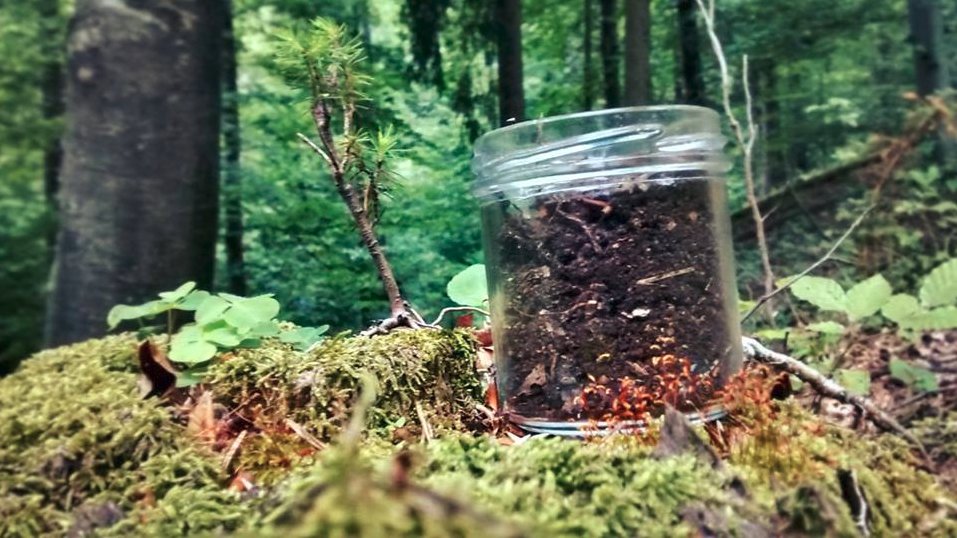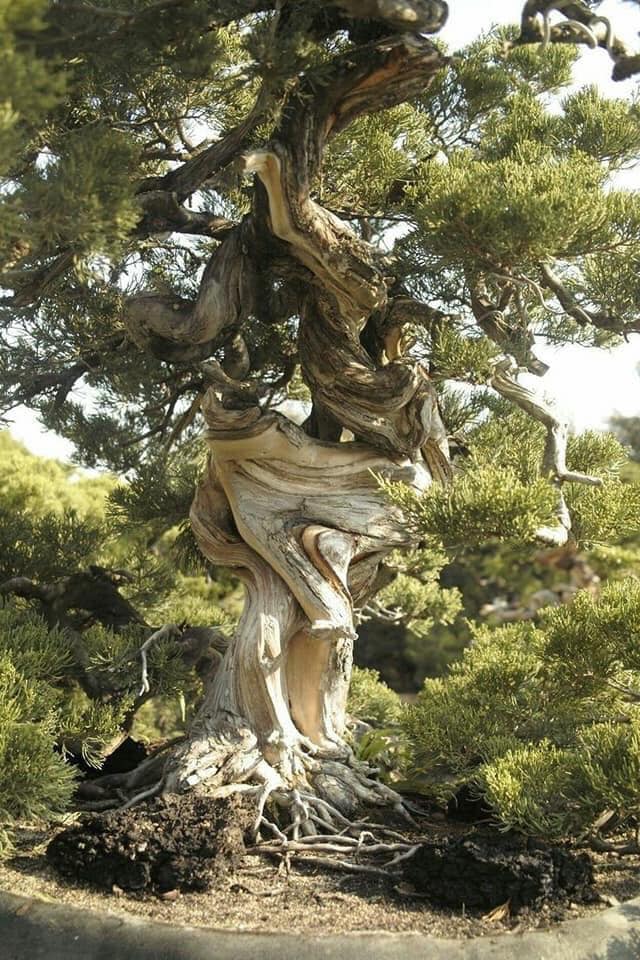

Don’t believe those who sell you something as “natural” or those who condemn you for being “unnatural”. All concepts of being build on concepts of interaction. Life emerges on dead rock in empty space. What is one can be complicated but can not loose touch of itself. Trust your experience. Dare to be “unnatural”, like nature does all the time.
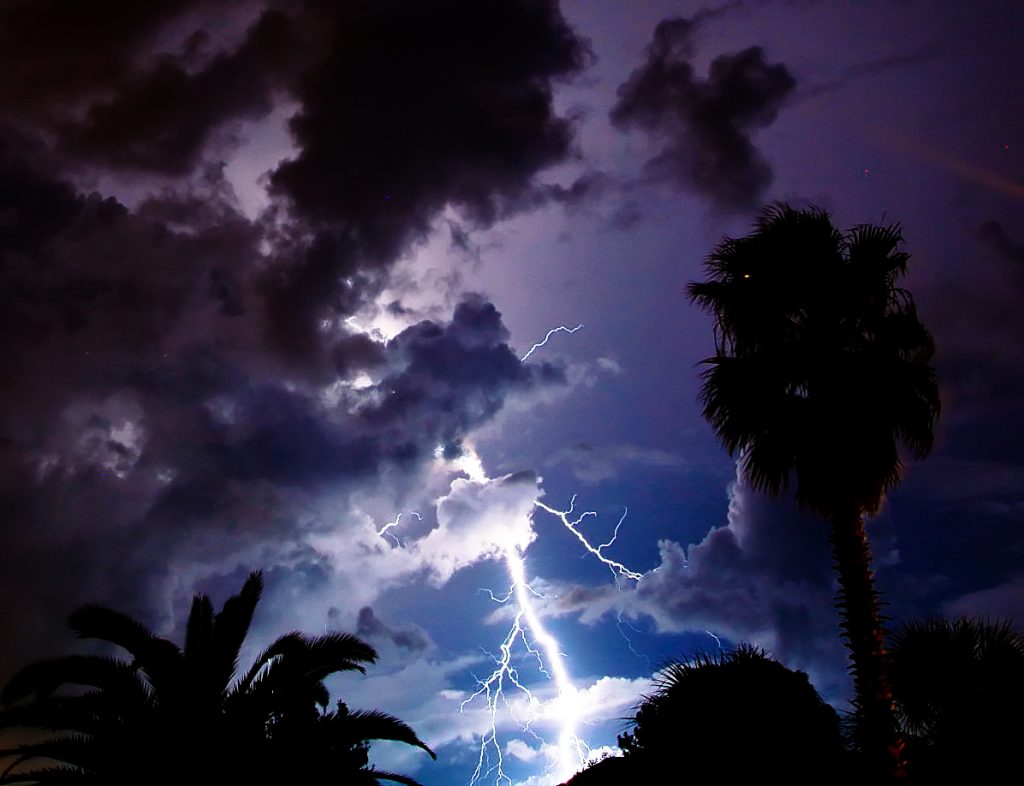
This was written quite quickly and in loose words, also please forgive the many metaphors.
Basically, physically, there is a unity.
And this unity is kind of folded very intricately.
Why? That is a great question if you want a dance, but maybe it is not the question you want to ask. Why do flowers grow? Why did big bang?
Why do you need a start for something that has no start. You are still the big bang.
You can question why the flowers grow, and you can question the big bang and evolution.
But your questioning itself is a flower, you see? Your questioning itself is part of the dance.
And when you ask why, not in the sense of small things, but in the sense of the fundamental things, then really what you long for is the start of causality. But you now, there is no start. You are the big bang. Time is an aspect of the universe, the universe is not an aspect of time. And you see, you ask about the fundamental things, longing for the fundamental answers, because you have forgotten who you really are. You have forgotten the intimate roots, the soil that you are, before, and after you live and die. Many waves on the ocean, the ocean is one.
When you forget who you really, things can be miserable. Not because there is evil or some religious stuff like that, but because you can not grow like a beautiful flower when you dont feel your roots. You can never be separate from the soil, but when you forget that you are it, then you wander around lost and in a tunnel of self-recursion that erodes itself and wears you down. And then you long for destruction as the only hope to find back to unity. And when this longing for destruction is projected outward, when people start to see others as “evil”, then like a tree falling in the forest because it has no roots, a huge wave that got pushed far from the ocean that goes down on the shore, or a storm cloud that is full of tension and separated charges, comes down in a lighting bolt to find back to its calm state. You see, there is no evil there. Destruction happens when tensions are not earthed, and find only in lightning their last resort of returning to unity.
Just like lightning, destruction is not a soil. It sometimes facilitates growth, but nothing grows directly on it. There is no “evil” soil producing “evil” being. People who believe in an essence of evil often cause massive destruction, while trying to eradicate “the bad ones”.
These are all metaphors. But you do understand, that there is no separate world of words. All this meaning is in your minds, there is nothing abstract from nature and unity.
Dont be afraid of forgetting about who you really are. It is impossible to be separate from the whole. And you can feel it everywhere anway, the connection. You can see it, with microscopes, with telescopes, with internet. You can touch it. You can forget it, yes. But do not worry when you feel lost, because it touches you. It is you, and you are it. Nature, the universe, the whole. The one.
And in this dance, sometimes we feel more like dancing. Sometimes we feel more like being close to the soil.
Where there is soil, trees grow. Where there is no soil, no trees grow. There is no evil, because evil doesnt grow. Stop listening to the religious propaganda. Religion in a limited sense can be like lightning, it goes all the hard way to find transcendence, often killing diversity and sometimes even people on its path. But transcendence is not outside of you, just like the soil is not outside of you.
And when you feel well rooted, you will see, that flowers are beautiful. And when you feel uprooted, you may listen to the wind, it will find you, and remind you. And when you see others inciting each other to kill because they think the soil is somewhere in the sky, or because their soil is better than another, you will stand up and in the name of empathy and love try all you can to make people remember that soil cant be separated, not even by words.
And hey, every tree knows all that. just ask them! ^.^
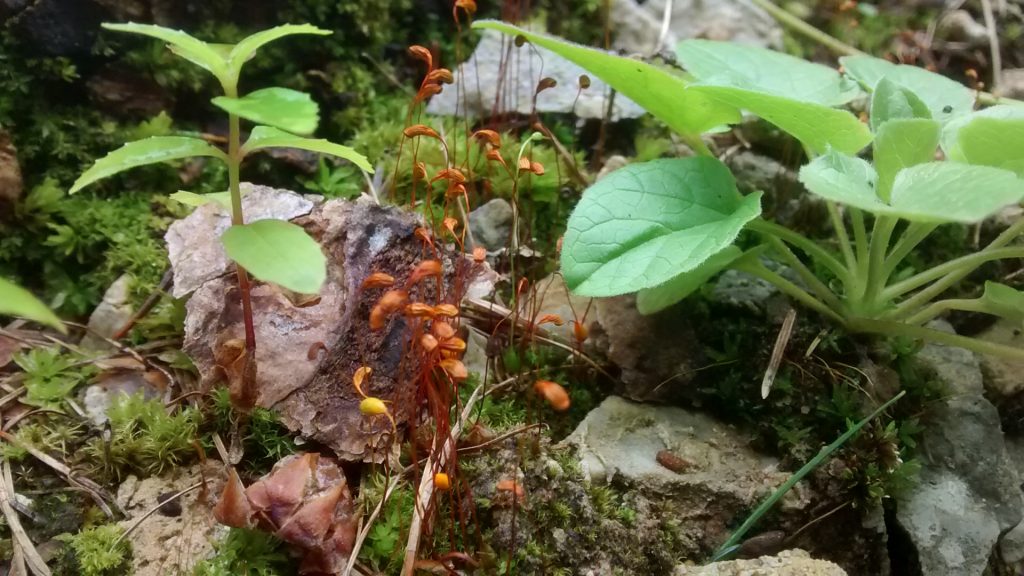
The question of free will or determinism and fate is often highly debated. One can make this question impossible to answer simply by removing the continuum and demanding an either/or of mutually exclusive free will or determinism. But without this assumption of mutual exclusiveness the question becomes a rather simple observation: When we think of the whole as a complex organism and of ourselves as a cell within, then it is fairly obvious that we as the cell at the same time influence our environment and are influenced by it.
From the perspective of the cell, there is no 100% control or knowledge over the whole organism, but neither do the OTHER parts of the organism, i.e. the environment, have 100% control over the cell, for the cell itself is an acting happening like all the other cells.
However here is the curious thing: When you take the cell and the environment together as a union, as the whole organism, then this organism as one being, then there is no external environment left to be influenced by and thus there is total “free will” (by definition of free will as the absence of external influences, i.e. the patterns of the whole can unfold without external intervention. please note that it would be absurd to think of the whole universe in terms of a single human being. in the case of the universe the “will” basically are the patterns of nature. the patterns of humans are just a small subset of the possible expressions of the patterns of nature). Surely enough, this total free will is also total boredom, for you have total knowledge and can’t be surprised. So one could say, the universe as a whole unity folds itself in many parts which are always connected but have limited perspective, so that the universe as a whole may surprise itself and explore its own diversity from these manifold perspectives.
Animals like us who often think in boxes often find ourselves in dangerously sharp definitions of our selves. Some people define themselves merely by their name, a few attributes of “character” which they believe to be written in stone, a banc account and a license plate. And from this definition, from this perspective of self, people surely feel like they have not much of a free will, for by definition they are almost nothing and mostly feel pushed around by an “external world”. But really, if you really try hard to define yourself, you will not be able to: You will merely jump from one association to the next indefinitely. This is because you and the environment go together as one.
So the thing is, depending on how broadly we define ourselves, depending on where we draw the line between us and the external world, we can have both total free will (when all happening is seen as self and there is nothing external to push us around), or no free will at all (when we define ourselves as nothing and are only pushed around by the allmighty external world). It is obvious, that both extremes are not very fruitful: When you think you are god all the time, you will be totally bored. And when you think almighty god pushes you around all the time, life will be terrible as it was in the ages of religious dictatorship.
Thus the best solution is to abolish the idea of god and embrace a worldview more in coherence with the sciences: The worldview of us as cells of an organims, where we are both actor and acted upon. Where life flourishes in diversity in the lands between the extremes of total free will or determinism.
Now i wish to leave one more thing: We in the perspective of cells can not have free will, if we do not trust the external world. Because if we are constantly afraid that the atoms may not hold us up, or that the heart may stop beating anytime, then we would always waste our time on a predetermined worrying that leaves no space for diversity. For us animals who reflect so much on so many things, and especially who we live in societies of hyperindividualism, it can happen quickly that our definition of self becomes narrow and our mental ties and our trust to the external world erode. And as already mentioned with this trust we loose our capacity to worrying. Thus for us animals who reflect so much it is important to at times take our time to realize and to foster this intuitive feeling, that “You’re breathing. The wind is blowing. The trees are waving. Your nerves are tingling.”—all go together as one, and that truly you can let the external world take over you, so that you see yourself in the deep fundamental perspective of you the universe, which you always are underneath the manifold diversity of cellular perspective. And this realization of unity will allow you to trust the external world as kin, so that you as the universe who are bored by total control will be happy to take on the perspective of you as the cell, without feeling limited by the knowledge that your influence is limited.
Total free will is not something you want as the universe, because there would be nothing that could suprise you. But you as the cell sometimes need to merge with the whole and be taken in by darkness, by the external world, so that you can relax in the realization that what you really are is the whole of all happening, and regain your trust in unity, so that with this trust you will eventually want to be part of diversity again. And so inseparably connected the universe explores itself from manifold perspectives.
To summarize for intuition: We are mutually influencing cells of an organism, of a big soup of happening. And this is great, we can only influence a bit but we trust the external world and feel that we have sufficient influence to be happy (this is the human experience of “free will”), unless we start worrying that the rest of the soup is somehow evil or bad or separate from us, then we wont be able to be diversity (and we feel “determined” and “driven”). Whether we trust the world (which from our current form we perceive as “external”) depends on how much of the connections we see, and on how we define our “self”. Like an apple on a tree, like a wave in the ocean, we are also an expression of the patternings of nature. We can identify a thought in our brain as an expression of “us” without even knowing what “us” is. And when we try to honestly find out what we are (without just taking the first arbitrary adjectives and associations that come to our mind to define ourself in an arbitrary self concept) by following the connections among our body to see how they go together, we inevitably end up in the connections of the whole universe, for our body is not a separate thing. And only if we see that all happening goes together as one, only if we can see ourselves as an aspect of nature, just like we see some bacteria inside our body as an aspect of “us”, then we are not afraid of nature and of the external world, on a fundamental level.
These are some old notes i wrote in my time when i was very much lost in depression and also drowning in the exhausting patterns of a human world of dogma and religious superstition, and wondered about the origin of the intuitive beautiful mystical experience that lies beneath. For the first time since i was taught to separate unity of the world into words, i felt the unity again, and i felt myself with it. Not through books or ritual. I didnt find it. It found me. The trees, the earth, carried me, when i broke down in cold streets of dogma. These notes i wrote to describe my experience of a time, when i could not carry myself, and nothing carried me. You see, the nothing, the dark side of the moon. The other side of the coin. The what you are not doing. These are the roots you are looking for. When flowers wither, resources return, new flowers grow. We are both individual flowers, and also as one the field that is flowering.
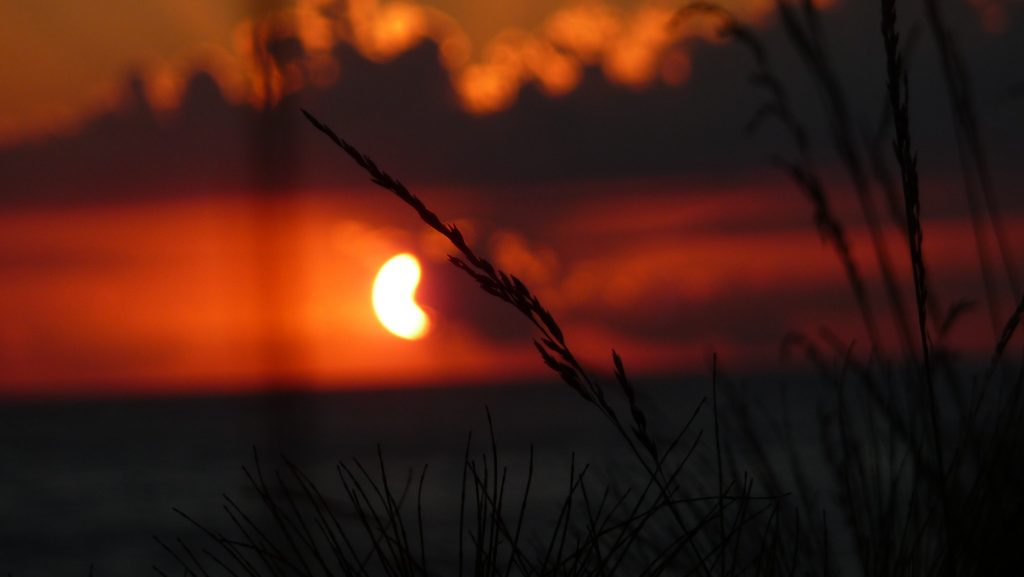
Religion can be divided into two main parts. Dogma and spirituality. The one is misunderstood words, the other is tangible meaning. Every religion has a beauty at its core yet over time the essential parts got covered in a huge pile of trash made out of misconceptions of simple things. The reason I choose not to define my religious views in a single term is because of the high potential of words to be misinterpreted, so i took my time to describe the things i like to make myself remember a bit more thoroughly. BEING A PART OF THE WHOLE - When i am not there is; i am being carried by the whole of happening (which i call nature, universe, cosmos, or 'the force'). My heart beats without me doing anything. Parts of happening like me may disappear and the whole will still be. There is a feeling of belonging to and disolving into unity as a whole. A feeling of empathy. - Like all parts, i am involved in a diverse dance of changes and interactions among the inseparable parts of the whole (both being influenced by and contributing to). There is a feeling of wanting to unfold, to flourish, to blossom, to be diverse and to dance, and this feeling is driving all parts, and expresses itself in me in the complex form of a reflecting and self-reflecting process that, while it can be limited from having to reflect on things like emotions, pain, illness, strong belief or habits, still strives to explore and to engage in diverse interactions, and thus to unfold and flourish and give life to diverse subprocesses (thoughts, relationships, etc). A feeling of curiosity. BEING THE WHOLE AS THE PARTS We are the whole, dancing, a unity looking at each other from manifold perspectives. We are not a separated whole, we are a folded whole. A unity manifold. A dancing serenity. Simultaneously we are both unity and diversity. Flowers need roots, roots want to flower. In this tension the web of life is spun, with raindrops that each reflect each other. You can never be separate from the whole. The whole is always there. Thus if you miss the whole, it is not because the whole is gone, it is because where you are the whole is so busy being the part that it can not see that it is the whole. A wave doesn't find back to the ocean by growing a huge tsunami, a wave finds back to the ocean by falling. Being the wave it seems like falling and disappearing, being the ocean it is like breathing in. And as the wave disappears and becomes the ocean you realize that deep down you as a wave did always have this subtle dark and warm feeling and that this feeling was really you the ocean remembering yourself while you were waving. Where there seems to be nothing, where there seems to be the other side of the coin, the shadow of the mountain, the underside of the embroidery, the dark side of the moon, the wild weeds, the pathless woods. Where you feel happening beyond your attention, you feel the remainder of the whole, that which you are missing. And to feel the remainder as something inseparable from that part of happening where you are, is when the universe remembers its unity. An ocean cant dance if the waves don't feel their hydrogen bonds. A tree can't flower if the flowers are cut off their roots. Thus this feeling of unity roots your mind, so you the unity can flower in beauty without always missing itself, the unity. SO WHO ARE WE? So cosidering these two aspects, it makes sense to think of each other as not just being a part of the whole (as that leaves out your underlying emergence from unity), but rather being the whole in the perspective of a (constantly changing) part. WHAT ABOUT GOD? How to live without god? Well, that's a matter of definition. If we use the word 'god' to refer to the most all-embracing of what there is, then it would by definition be impossible to live without it, as we would be a part of it. Now, i do appreciate the feeling often associated with this definition of 'god', but for me, god is an ill-defined word. I prefer the words 'nature', 'universe', 'cosmos', 'the force' or simply 'the whole'. To me, nature is the whole thing that we are embedded in; the soil on which existence is taking place. It is what is there regardless of whether we are aware of it. Nature is what we are, when we are not. I don't care so much about the word which i use to talk about it, however, as about the feeling i associate with it (since those feelings are the most direct signals our roots provide to not fall apart in an illusion of disconnectedness). It is invariably immediate, warmly intimate and deeply inspiring. Probably when you mean god, you mean the same, but i don't like this word, as it is often associated with bearded old men. ARE YOU A PANTHEIST? Secretly i am a pantheist (similar to what is defined here: pantheism.net), but the problem with this word is that when you talk with the wrong ones, they reply 'aah, you believe god is everything', but i want to avoid using the word god, as it has been made completely unusable over time, which is why sometimes, i still think i should better not call myself in any way... For in the end, words often make separate what is one.
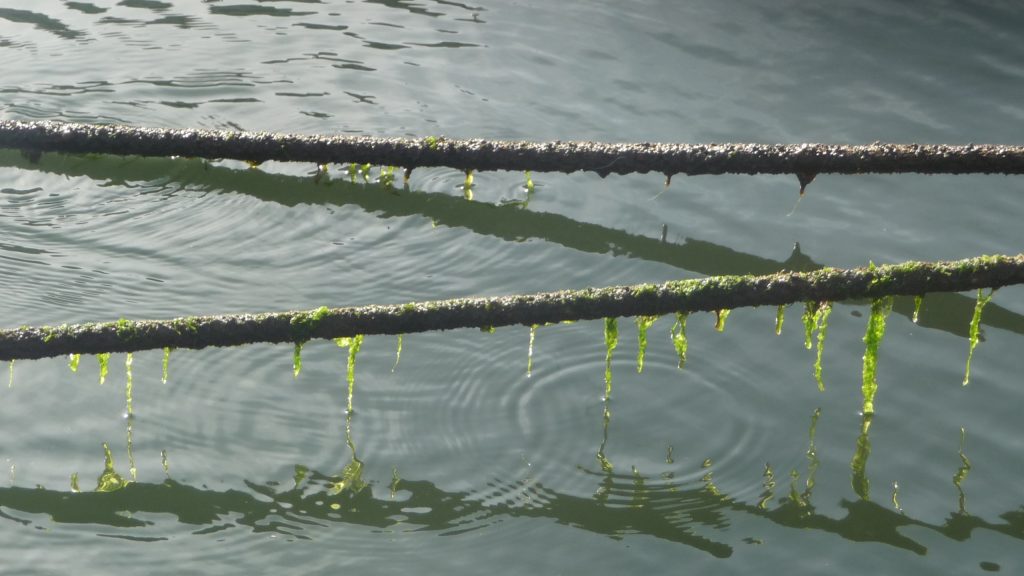
Look at a tree: They obviously like adventures and grow in the most diverse and intricate ways! However, do they look like they grow so that they totally uproot themselves for some kind of uber extreme adventure?
No. Unlike our modern society often does, trees grow well rooted. And yet they grow the most adventurous and complicated flowers!
See, a tree that uproots itself wont be able to grow in complex forms. It would be like hydrogen bombs: A terrible adventure for a second, but then mostly just really really dull pain and then no more adventures whatsover.
A tree knows, that rootedness and adventure don’t grow in opposites, they grow together. And happiness is the realization of just that. Happiness is obviously not pure explosion and monstrous adventure in total pain. And happiness is not pure rootedness with nothing to do.
It is not in the extremes, but within the tension of curiosity (yay adventures!) and feeling of connectedness (rootedness), where trees can grow to the most beautifully diverse (happy) forms.
So in practical terms if you want to be a happy tree: Plan for the future to have great adventures, but don’t plan so that you forget that the great adventure that can make you happy in the end will always rooted here in the present moment.
When there is suffering in the present moment, than we put our hopes in the future. This hope, is really part of being there for yourself as good as you can, in the present moment.
Trees dedicate some effort to have interesting adventures growing not just today but also tomorrow. But they don’t plan so that they can no longer grow well today.
They know that no flowers in the future can be so interesting as to cut your flowering today. Cut the roots today for the flowers of tomorrow, you cut the flowers of today and tomorrow. Stay focused on your well-being, here and now.
Thus: Be like a tree. And hug one.
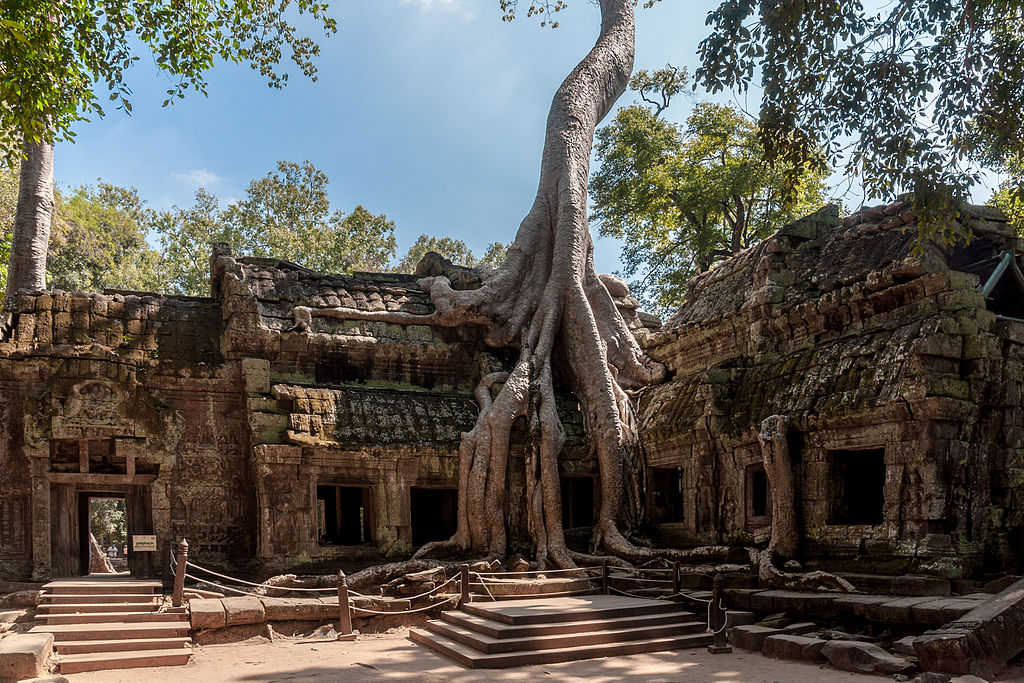
While nothing can replace our wonderful modern medicine, the smell of live forest soil is a wonderful “drug” of its own. The complexity of its smell, somehow familiar, can be incredibly soothing, and earthing. And the soil is where we all connect.
When you smell the dirt you receive a call. Kind of a reminder of a world we are often a bit isolated from. It may seem discomforting and confusing at first, but pick it up and follow the call of the soil. For it is the call of your brain, the system you are most closely connected to, trying to make you realize the connections beyond the fringe of “you”. Why would it do that? Who knows, but there is an evolutionary advantage to feeling in peace with your environment, and apart from that an interconnected whole can not really divide itself, remaining connected despite all imaginably most diverse entanglement of its parts. It is the call of what is more than you. The call that makes evident to the you of your perspective the you that is all perspectives which is the you of your perspective. Suddenly you find yourself and you wonder what you where doing all along before that.
The soil is a reminder that there is a deeper soil beneath our human societies. And that the soil is a symbol of the real soil, as much as the real soil is the soil which is the symbol. A soil we can never loose touch with, but can merely be in illusion of having lost touch with. And when we happen to do so, it calls us. Or rather it calls itself to its senses. Nature outside of you, nature inside of you. What is you? You are the ocean, and you is a wave in the ocean.
You know why you love the nonhuman animals (assuming you don’t eat them). Because they feel the soil very clearly and don’t get mixed up in the abstractions of language (sometimes they do, but not as often).
We human apes live in a human society, but this human society lives in a bigger society. The soil is a reminder that we are not separate, but that we are always part of nature, and our societies are no different than anthills. The soil extends beyond the anthill.
